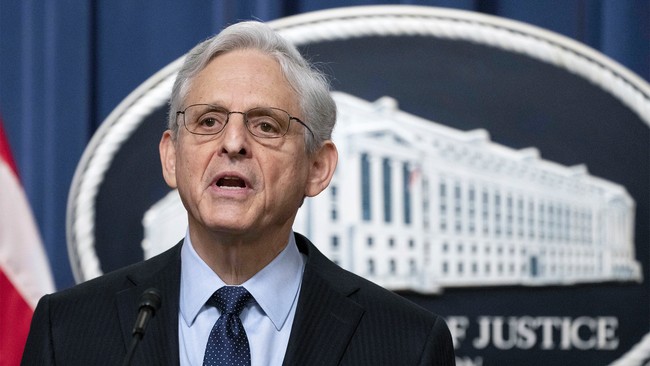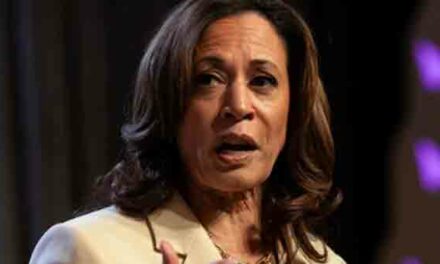We support our Publishers and Content Creators. You can view this story on their website by CLICKING HERE.

The House Judiciary Committee is escalating its efforts to obtain the audio recording of President Joe Biden’s interview with Special Counsel Robert Hur by filing a lawsuit against Attorney General Merrick Garland in his official capacity.
Advertisement
The complaint filed on Monday explains that the dispute “is principally about a frivolous assertion of executive privilege” that has prevented the House lawmakers working to conduct oversight of President Biden and his administration from obtaining the recordings of interviews even after the transcripts were publicly released.
“As part of its oversight investigation into the Department of Justice’s (DOJ) commitment to impartial justice and its impeachment inquiry into President Joseph Biden, the Judiciary Committee issued a Subpoena to Attorney General Merrick Garland to obtain records related to Special Counsel Robert Hur’s investigation of President Biden’s mishandling of classified documents,” the committee’s complaint reiterates. “Among other things, the Committee sought materials related to the Special Counsel’s interviews with President Biden and Mark Zwonitzer, the ghostwriter of President Biden’s 2017 memoir.”
Despite these defied subpoenas — which eventually escalated to the point of holding Attorney General Garland in contempt of Congress — the Justice Department continues to obstruct the release of the recordings at issue.
Recommended
Advertisement
Instead of cooperating with Congress or complying with compulsory processes, “Attorney General Garland asked that President Biden assert executive privilege over those recordings, and President Biden complied with that request,” the lawsuit notes.
As for the Biden administration’s stated justification for invoking privilege, the Judiciary Committee isn’t having it. From its complaint:
Additionally, the heart of the privilege claim—that Executive Branch employees will be less likely to cooperate with DOJ investigations if they know that audio recordings of their interviews may be released to Congress after DOJ has made transcripts of those same interviews publicly available—is at odds with common sense. If the potential for disclosure would chill cooperation, it would be the disclosure of a transcript, which DOJ voluntarily disclosed here, not the disclosure of audio recordings after the transcripts are widely available.
The lawmakers’ lawsuit further explains that audio recordings are “better evidence than transcripts” because they “contain verbal and nonverbal context that is missing from a cold transcript.” Such context “is quite important here because the Special Counsel relied on the way that President Biden presented himself during their interview — “as a sympathetic, well-meaning, elderly man with a poor memory” — when ultimately recommending that President Biden should not be prosecuted for unlawfully retaining and disclosing classified information.”
Advertisement
“The audio recordings, not the cold transcripts, are the best available evidence of how President Biden presented himself during the interview,” reiterates the Judiciary Committee’s lawmakers. “The Committee thus needs those recordings to assess the Special Counsel’s characterization of the President, which he and White House lawyers have forcefully disputed, and ultimate recommendation that President Biden should not be prosecuted.”

 Conservative
Conservative  Search
Search Trending
Trending Current News
Current News 



